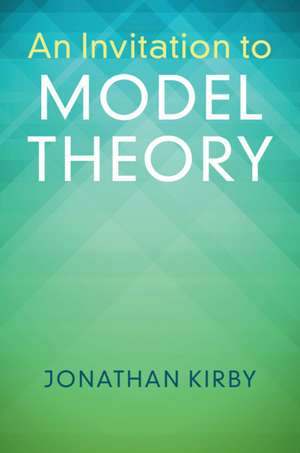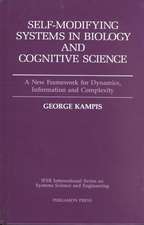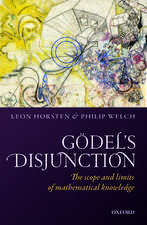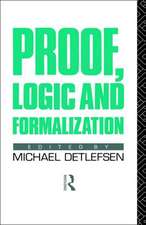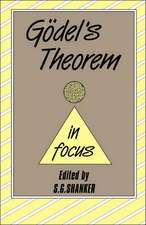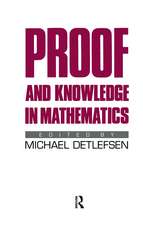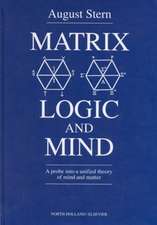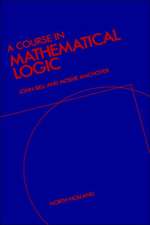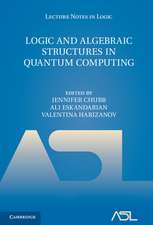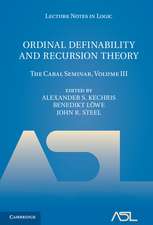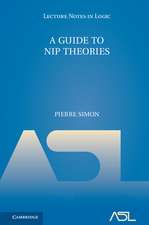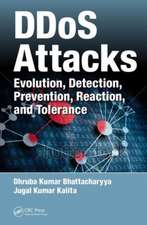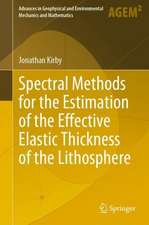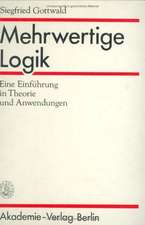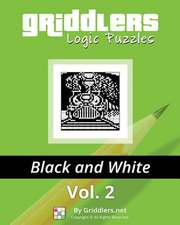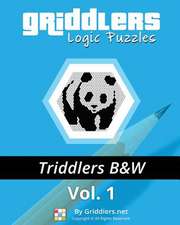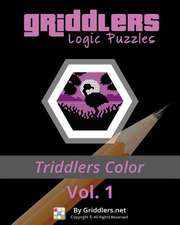An Invitation to Model Theory
Autor Jonathan Kirbyen Limba Engleză Paperback – 17 apr 2019
| Toate formatele și edițiile | Preț | Express |
|---|---|---|
| Paperback (1) | 191.22 lei 3-5 săpt. | +10.44 lei 7-13 zile |
| Cambridge University Press – 17 apr 2019 | 191.22 lei 3-5 săpt. | +10.44 lei 7-13 zile |
| Hardback (1) | 421.93 lei 6-8 săpt. | |
| Cambridge University Press – 17 apr 2019 | 421.93 lei 6-8 săpt. |
Preț: 191.22 lei
Nou
Puncte Express: 287
Preț estimativ în valută:
36.59€ • 38.20$ • 30.28£
36.59€ • 38.20$ • 30.28£
Carte disponibilă
Livrare economică 15-29 martie
Livrare express 01-07 martie pentru 20.43 lei
Preluare comenzi: 021 569.72.76
Specificații
ISBN-13: 9781316615553
ISBN-10: 1316615553
Pagini: 194
Ilustrații: 5 b/w illus.
Dimensiuni: 151 x 227 x 12 mm
Greutate: 0.27 kg
Editura: Cambridge University Press
Colecția Cambridge University Press
Locul publicării:Cambridge, United Kingdom
ISBN-10: 1316615553
Pagini: 194
Ilustrații: 5 b/w illus.
Dimensiuni: 151 x 227 x 12 mm
Greutate: 0.27 kg
Editura: Cambridge University Press
Colecția Cambridge University Press
Locul publicării:Cambridge, United Kingdom
Cuprins
Preface; Part I. Languages and Structures: 1. Structures; 2. Terms; 3. Formulas; 4. Definable sets; 5. Substructures and quantifiers; Part II. Theories and Compactness: 6. Theories and axioms; 7. The complex and real fields; 8. Compactness and new constants; 9. Axiomatisable classes; 10. Cardinality considerations; 11. Constructing models from syntax; Part III. Changing Models: 12. Elementary substructures; 13. Elementary extensions; 14. Vector spaces and categoricity; 15. Linear orders; 16. The successor structure; Part IV. Characterising Definable Sets: 17. Quantifier elimination for DLO; 18. Substructure completeness; 19. Power sets and Boolean algebras; 20. The algebras of definable sets; 21. Real vector spaces and parameters; 22. Semi-algebraic sets; Part V. Types: 23. Realising types; 24. Omitting types; 25. Countable categoricity; 26. Large and small countable models; 27. Saturated models; Part VI. Algebraically Closed Fields: 28. Fields and their extensions; 29. Algebraic closures of fields; 30. Categoricity and completeness; 31. Definable sets and varieties; 32. Hilbert's Nullstellensatz; Bibliography; Index.
Notă biografică
Descriere
An innovative and largely self-contained textbook bringing model theory to an undergraduate audience.
